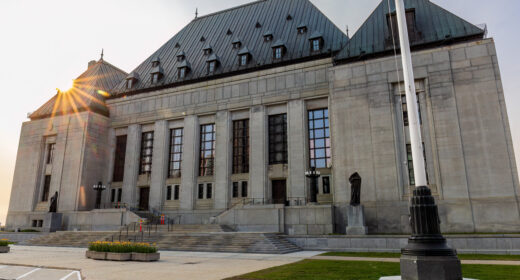Nelligan O'Brien Payne gratefully acknowledges the contribution of Suzanne Dunn, Student-at-Law in writing this blog post.
One of the primary employers in Ottawa is the Public Service of Canada. Since Nelligan O’Brien Payne’s office is located here in the Nation’s Capital, we sometime face interesting challenges related to intellectual property rights when something is invented by a public servant.
In Canada, inventors who are working as public servants have unique obligations when filing their patent applications. According to the Public Servants Inventions Act (“PSIA”), they must disclose their inventions to the proper minister and file additional forms that declare their status as a public servant when filing their patent.
This is required because, depending on when and where the invention was made, their patent’s intellectual property rights may have vested in the government.
If the inventor failed to declare his or her public servant status upon filing a patent application, the inventor may be at risk of fines or penalties.
However, what if the inventor is an inactive, unpaid member of the Canadian Forces and thought they do not have to disclose such status? Would the patent right coming out of such an application be invalid?
These very issues were considered by the Federal Court of Appeal in the case of Brown v Canada.
Louis Brown, a “non-active” member of the Canadian Forces, appealed a summary judgment decision by the Federal Court that had found his failure to disclose his public servant status on his patent application was a contravention of section 4 of the PSIA. Accordingly, the Court decided that this constituted an untrue allegation on the petition for his patent application, which was material to subsection 53(1) of the Patent Act, and thus his patent could have been invalidated when the matter went to trial.
Brown appealed this decision. The two issues before the Federal Court of Appeal were:
- Was Brown considered a “public servant” even though he was an inactive and unpaid member of the Canadian Forces?
- Did Brown’s failure to disclose his public servant status on his patent application invalidate his patent?
Are Canadian Forces members “public servants”?
Regarding the first issue, the Federal Court of Appeal found that Brown was a “public servant” as defined by section 2 of the PSIA.
Brown was not actively employed by the Canadian Forces when he filed his patent application. At the time, he was placed on the Supplementary Holding Reserve, where he was listed as unavailable to take on duties. In this role, he did not receive any benefits or remuneration and he was never placed in active service; however, section 2 of the PSIA defines a “public servant” as “any person employed in a department, and includes a member of the Canadian Forces or the Royal Canadian Mounted Police”. By specifically referencing members of the Canadian Forces, beyond employees of other departments, the Court held that it was clear that Canadian Forces members were “public servants” regardless of whether they were actively performing work in exchange for pay or not.
Failure to disclose “public servant” status
The crux of the issue in Brown was whether a violation of section 4 of the PSIA would void a patent under section 53 of the Patent Act for filing “untrue information”. The Federal Court of Appeal held that the Patent Act stands as a complete statutory scheme regarding patents, and the Commissioner of Patents has no discretion to deny a patent as long as it meets the requirements in the Patent Act. There is no requirement for an applicant to disclose his or her public service status under the Patent Act.
Conversely, the Public Servants Inventions Regulations requires public service inventors to submit additional forms when filing for a patent, which identifies them as public servants. Under the PSIA, if a public servant makes an invention when either acting within the scope of his or her duties, in connection with his or her duties, or using facilities, equipment or financial aid provided by the government, the intellectual property rights may vest in the government.
The problem in Brown was that the Patent Rules did not require him to declare he was a public servant in order to receive a patent, but the Public Servants Inventions Regulations required him to declare that he was in order to comply with the PSIA.
The issue was settled due to subsection 12(2) of the Patent Act, which states:
Any rule or regulation made by the Governor in Council has the same force and effect as if it had been enacted herein.
The PSIA contains no similar provision. Therefore, its regulations are considered to be subordinate. The Patent Act prevailed, as it does not require disclosure to obtain a patent. The failure to disclose public service status does not invalidate the patent or constitute an untrue allegation under subsection 53(1) of the Patent Act.
Now, this does not relieve Brown’s obligation to disclose his public servant status under the PSIA. By failing to declare his status as a public servant, he is subject to penalties listed in section 11 of the PSIA. The Court also noted that the question of the ownership of the intellectual property rights of the patent pursuant to the PSIA, remained open.
Conclusion
Inventors who do not disclose their public servants status on their patent applications will not automatically have their patent applications invalidated for their failure to disclose; however, such a fact would leave the inventors vulnerable to fines or penalties under the PSIA, and the government may claim ownership of the patent rights.


